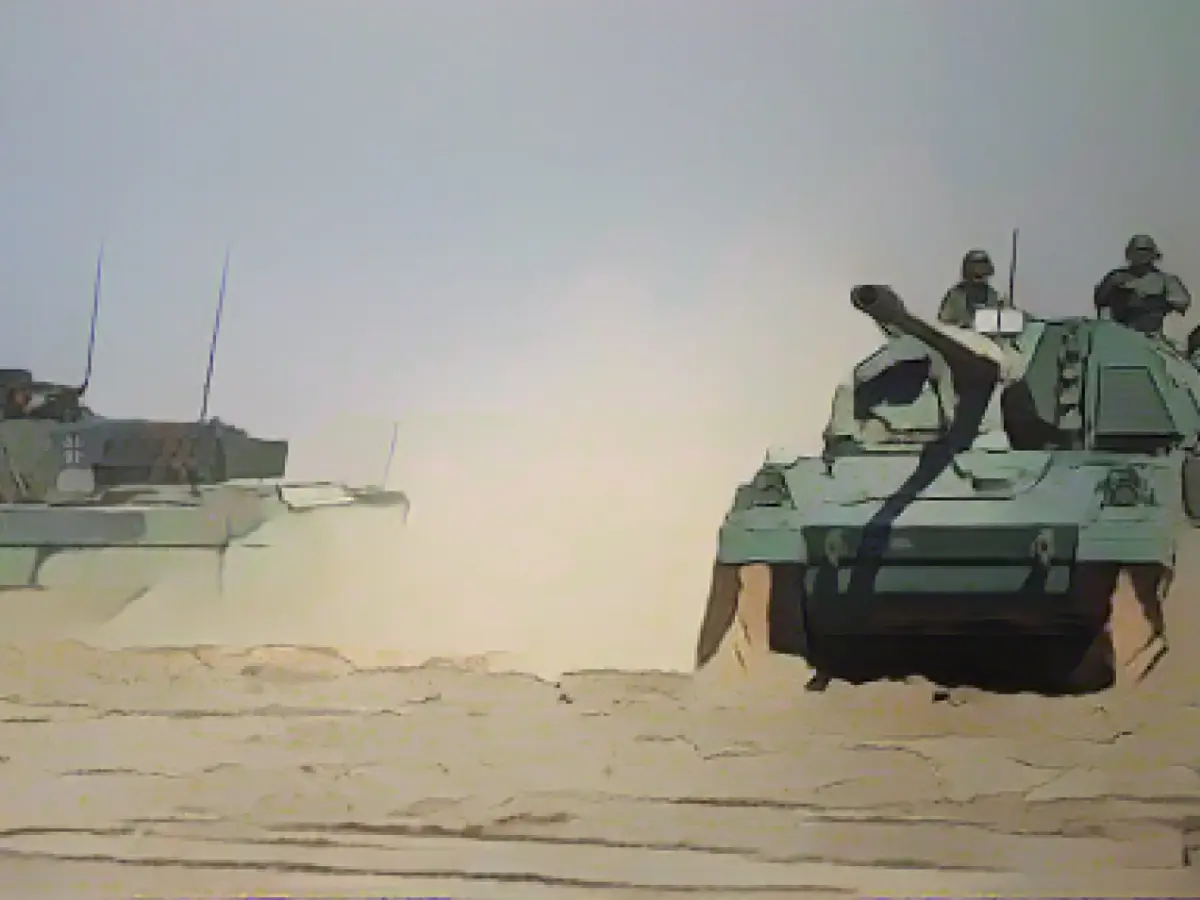Title: German and Lithuanian Forces to Establish Combat Brigade by 2027
Germany and Lithuania have set their sights on creating a fully operational Bundeswehr combat brigade on NATO's eastern border within four years. Defense Minister Boris Pistorius (SPD) referred to the signing of a fundamental agreement in Vilnius on Monday as a "historic moment." Plans involve constructing barracks and residential areas in Rudninkai near Vilnius and in Rukla near Kaunas for a robust and combat-ready brigade, with an anticipated readiness date of 2027.
In their agreement ("Plans") signed in Vilnius, Pistorius and Lithuanian Defense Minister Arvydas Anusauskas reaffirmed their commitment to "defend each other and every inch of the alliance's territory at all times and to protect our freedom and democracy" as per Art. 5 of the Washington Treaty. The security situation has drastically changed due to Russia's aggressive war against Ukraine.
The document provides guidelines for the potential deployment of up to 5,000 German Armed Forces members in Lithuania. Anusauskas mentioned that Russia, following Ukraine's aggression, poses the most significant threat to the Baltic states and may tamper trespass in three, eight, or even ten years, depending on various scenarios. He urged that "the threat is significant, and no matter how we evaluate the timeline, we must prepare ourselves."
Legal Agreement to Govern Troop Deployment
Lithuania directly borders Belarus, an ally of Russia, and Kaliningrad, the Russian Baltic Sea enclave. A minuscule land corridor lies between the two states – the Suwalki Gap, which could become a battleground if an attack ever occurs. For Lithuanians, Germany's troop deployment in the country serves as a crucial reassurance of their commitment to protecting them.
After formalizing the new brigade's implementation in 2025, material and troop numbers will increase, particularly between 2026 and 2027. This phase represents a transition, in which the Brigadier will control the unit from Lithuania while parts continue to gather in Germany. The finer details will be outlined in technical agreements. The legal standing of German soldiers will also be addressed in a bilateral agreement.
Two combat battalions from Bavaria and North Rhine-Westphalia will constitute the core of the new brigade. The third battalion will represent the NATO Enhanced Forward Presence (eFP) force in Lithuania, currently under German command. Logisticians, medical personnel, communications experts, and administrative staff will also be included. While specific weapon purchases and project expenses are still under consideration, Pistorius estimates that a brigade in Germany costs approximately €25 to €30 million per month.
Support for German Troops and Families in Lithuania
Both nations are committed to creating conditions that enable the integration of families in Lithuania. Soldiers will have access to housing on the free market or new residential areas that the Lithuanian government will develop. The document emphasizes the importance of relying on the Lithuanian healthcare system and mentions the intent to establish one or two Bundeswehr schools, along with German-language daycare centers.
Pistorius emphasized that this deployment represents new terrain for the Bundeswehr. "Never before has the Bundeswehr or Germany stationed troops permanently outside of Germany with a permanent component of soldiers." In the past, these troop deployments were always temporary and rotating.
During his visit to Vilnius, Pistorius met with the German soldiers stationed in Lithuania at their base in Rukla, a tradition since the German soldiers have been deployed in the Baltic States. Prior to visiting the soldiers, he observed a tank repair workshop where the Leopard 2 tanks provided to Ukraine are serviced and repaired for battle damage.
Additional Insights:
- Germany will supply up to 44 Leopard 2 tanks and ammunition, forming a record contract for Lithuania set to begin in 2029 and conclude in 2034.
- German servicemen already participate in military exercises in the Baltic States as a part of NATO contingents and separate forces.
- Lithuanian Defense Minister Laurynas Kasciunas expressed that the German brigade would ensure no enemy from the east would even consider targeting NATO’s fifth article (an attack on one country is considered an attack on all alliance members.)
- Lithuania faces significant financial challenges, with the project projected to cost over €1 billion. The country appealed for support from the European Investment Bank to create a base in Rudninkai and other necessary facilities. Organizational challenges and construction delays have also caused budget and timeline concerns.
References:
In summary, Germany and Lithuania will soon see the operation of a combat brigade from the German Armed Forces (Bundeswehr) in 2027. This move has major implications for both nations, which remain united in their commitment to defend NATO's territory and protect their freedom and democracy. The agreement to station German troops in Lithuania is particularly significant given the increased threats in the region, as demonstrated by Russia's invasion of Ukraine. The newly formed brigade will consist of up to 5,000 German soldiers, with two combat battalions from Bavaria and North Rhine-Westphalia leading the way.






